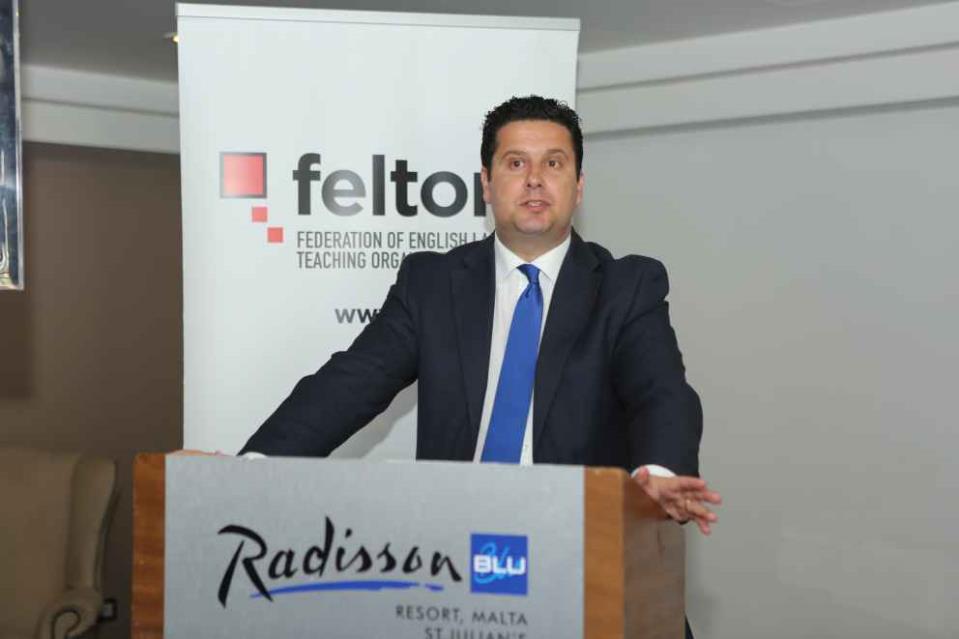The English Language Teaching (ELT) segment is a niche that attracts nearly 80,000 students annually and in 2014, English Language Schools alone employed approximately 2,300 teaching and non-teaching staff, Tourism Minister Edward Zammit Lewis said today.
Speaking at the launch of of the 2014 Feltom ELT Industry Survey, Dr Zammit Lewis said: “The strong co-operation that exists between Government, through the MTA and the EFL Monitoring Board, Feltom and the various stakeholders within the industry has allowed the latter to develop further and become more resilient, with very interesting prospects ahead. The new National Tourism Policy and strategy with a vision till the year 2030, that was launched a few weeks ago includes a specific policy direction towards the development of the niche markets such as the English Language Schools.”
In the past decade, this segment grew by an average annual rate of 3.4% while in 2014, EFL students accounted for almost 4.4% of all tourist arrivals in the Maltese Islands, Dr Zammit Lewis said. “The key indicator for this segment is the number of student weeks. These students have a higher than average length of stay (3.2 weeks) and last year we experienced an increase of almost 9% in student weeks when compared with that registered in 2013. According to the last figures published by the National Statistics Office, students coming from the African Continent increased by nearly 42% whilst those coming from the American Continent increased by more than 36% when compared to 2013.”
The Tourism Minister said there was also a remarkable increase in students from Colombia, South Korea and Brazil. “Looking at these figures, one considers that the ELT Segment as a niche market that offers potential opportunity to tap in the BRIC markets and other growth markets. This is in line with Government policy of more diversification of our tourism source markets in general.”

Dr Zammit Lewis said he considers the ELT Segment as an important source for future quality tourism growth. He said future efforts in the sector should focus mainly on a more coordinated approach amongst the licensed ELT schools and the consolidation of volumes in the traditional teenage sector that travel to our Islands during their school holidays.
The country should also invest to attract and grow the adult, professional, higher yield, longer term and off peak English Language Learning sector.
Addressing seasonality is also of the utmost importance, Dr Zammit Lewis said, pointing out that he was encouraged by NSO figures published this morning which showed that tourism arrivals in Malta for the first quarter of this year rose by 7.7% over the same period of 2014. Expenditure exceeded €192 million.
Another priority is tapping into the opportunities that improved flight connectivity with medium and long haul markets offering to open up new markets also in distant markets such as Asia, South America and Eastern Europe.
“We must also improve the cooperation and coordination of marketing and promotion efforts between MTA, Feltom and the individual Schools to ensure the maximum return from all implemented initiatives, and we must keep in mind global events that would certainly influence this segment in particular.” Dr Zammit Lewis noted that the Libyan crisis had affected the number of Libyan students coming to Malta. The same happened in the case of Russian students in 2014, as a result of political and economic factors.” Lastly, a more efficient VISA regime is needed.
The Tourism Minister praised FELTOM for its ongoing commitment in improving the service quality across the industry. “You have managed to build a resilient industry to withstand various challenges. Government has the firm intention to continue supporting FELTOM and the industry particularly in relation to the three pillars of our new tourism policy, namely those of accessibility, quality and better marketing of our tourism offer.”